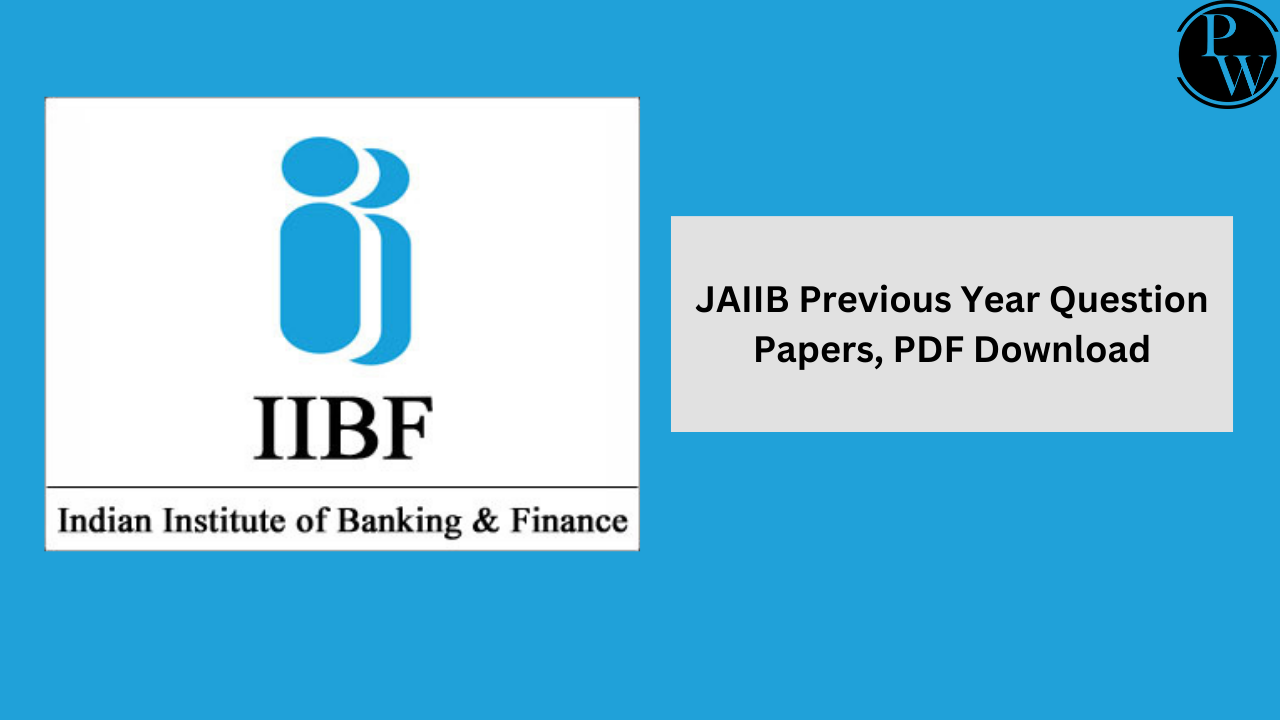
Types of Government Securities Market in India: Government securities, also known as "G-Secs" or "Govies," are a vital part of the stock market and are essential for a country's economy. Basically, they're like IOUs issued by the government to raise money for different things like building roads or managing debts. When you invest in a G-Sec, the government promises to pay back the money you've invested, plus any interest, when the security matures. Some G-Secs even pay you interest regularly, just like a corporate bond. One popular example of government security is the Sovereign Gold Bond issued by the RBI. Overall, G-Secs are a safe and important investment option that helps fund important projects and manage government finances.
For those preparing for banking exams,knowing about government securities is super important. Questions about financial stuff and the economy come up a lot, and understanding G-Sec is a must. In this article candidates learn about Types of Government Securities Market in India, which makes it really helpful for studying for exams.What is Government Securities in India?
Government securities in India refer to debt instruments issued by the government to raise funds for various purposes. These securities include bonds, treasury bills, and notes. They play a vital role in India's financial system by providing a way for the government to borrow money from the public. The government securities market in India has two main parts: the primary market, where new securities are issued, and the secondary market, where existing securities are traded. In the primary market, the government borrows money from the public at reasonable costs and manages risks associated with borrowing. The secondary market allows for the trading of existing securities and helps the central bank control the economy through actions like Open Market Operations. The Reserve Bank of India (RBI) manages public debt and is responsible for developing the government securities market in India. Reforms are often made to improve this market and stimulate economic growth. Government securities in India are considered safe investments with virtually no risk, making them popular among investors.What are Different Types of Government Securities in India?
The Reserve Bank of India offers various types of government securities. Here are the different types of government securities in India:Treasury Bills
Treasury Bills, commonly known as T-bills, are short-term government securities issued by the Indian central government. Think of them as promises from the government to repay you after a short period, usually less than a year. There are three types of T-bills based on how long they last: 91 days, 182 days, and 364 days. Unlike some investments that pay interest regularly, T-bills work differently. They're called "zero-coupon securities" because they don't pay any interest along the way. When you buy a T-bill, you pay a discounted price upfront. Then, when the T-bill reaches its maturity date, the government pays you back the full face value, which is the original amount you invested. For example, let's say you buy a 91-day T-bill with a face value of Rs. 200. You might pay Rs. 196 upfront. After 91 days, the government will give you back the full Rs. 200. The Reserve Bank of India (RBI) holds weekly auctions to issue these T-bills to investors who are interested. In short, T-bills are short-term government IOUs that you buy at a discount and get repaid the full amount when they mature. They're unique because they don't pay regular interest like some other investments.Cash Management Bills (CMBs)
Cash Management Bills (CMBs) are a type of short-term investment introduced in India's financial market in 2010 by the government and the Reserve Bank of India (RBI). Similar to Treasury bills (T-bills), CMBs are also short-term securities issued when needed. However, the key difference is their maturity period. CMBs have a maturity period of less than 91 days, making them an ultra-short investment option. These Government Securities in India serve a specific purpose. They're used to cover temporary cash flow needs. When the government requires funds for a short period, they issue CMBs to raise the necessary money. Once the CMBs mature, the government repays the investors, returning their money. In summary, These Government Securities in India are short-term securities issued for less than 91 days, offering an ultra-short investment option for investors. They help the government manage temporary cash flow needs efficiently.Dated Government Securities (Dated G-Secs)
Dated Government securities are a type of investment with either fixed or floating interest rates, known as the coupon rate. They're sold at face value and offer a steady interest until maturity or redemption. Treasury bills and Cash Management Bills, which are short-term, Dated Government securities are long-term instruments. They range from 5 to 40 years in tenure. Primary dealers typically purchase Dated Government securities. These are financial institutions authorized to trade directly with the RBI. Types of Dated G-Secs:- Capital Indexed Bonds: Adjust principal based on inflation.
- Special Securities: Designed for specific government needs.
- 75% Savings (Taxable) Bonds, 2018: Taxable with fixed returns.
- Bonds with Call/Put Options: Offers flexibility for issuer or investor.
- Floating Rate Bonds: Interest varies with market conditions.
- Fixed Rate Bonds: Steady interest throughout tenure.
- Inflation Indexed Bonds: Shield against inflation impact.
- Special Securities: Tailored for unique government requirements.
- STRIPS (Separate Trading of Registered Interest and Principal Securities): Separates interest and principal for trading.
- Purpose: Dated Government securities serve as long-term investment options provided by the government. They cater to different investor preferences and economic situations.
State Development Loans (SDLs)
State Development Loans (SDLs) are a type of dated government securities issued by State governments in India to meet their budgetary needs. These loans help State governments raise funds when they require financial assistance. SDLs are made available through auctions held every two weeks, managed by the Negotiated Dealing System. This system ensures smooth issuance and trading of these securities. Similar to other government securities, SDLs come with different investment tenures, offering options for various durations. However, SDLs typically have slightly higher interest rates compared to central government-issued dated government securities. The primary distinction between dated government securities (G-Secs) and State Development Loans (SDLs) lies in their issuers. G-Secs are issued by the central government of India, while SDLs are issued by individual State governments. This difference is crucial for investors to understand when considering these investment options.Treasury Inflation-Protected Securities (TIPS)
Treasury Inflation-Protected Securities (TIPS) are a type of investment offered by the government, which you can hold for either five, 10, or 30 years. These securities pay out regular interest to investors every six months. TIPS are quite similar to regular treasury bonds, but there's one big difference. In a regular treasury bond, the initial amount you invest stays the same until it matures. However, with TIPS, your initial investment gradually increases over time to keep pace with inflation, as measured by the Consumer Price Index (CPI). If there's a rise in inflation during a specific year, the value of your TIPS also goes up during that time. This ensures that your TIPS bond holds its value over its entire lifespan, unlike a regular bond, which might lose its value due to inflation after it matures. So, investing in TIPS can be a smart move to shield your money from the effects of inflation. It's especially useful for long-term investors who want to safeguard the purchasing power of their investment.Zero-coupon Bonds
Zero-coupon bonds are a unique type of investment that differs from regular bonds. When they're issued, they're sold at a price lower than their face value. For instance, a bond with a face value of Rs. 100 might be sold at Rs. 80. Unlike regular bonds, zero-coupon bonds don't make any periodic interest or coupon payments during their term. Instead, investors hold onto them until they reach maturity. Upon reaching maturity, the bond is "redeemed at par," meaning it's paid back to the investor at its full face value. In the earlier example, the Rs. 100 face value bond bought for Rs. 80 would be repaid Rs. 100 at maturity. Since these bonds don't pay interest along the way, they're seen as a way for investors to secure a guaranteed return if they hold onto the bond until maturity. They're a simple investment option that ensures a fixed payout at the end of the bond's term.Capital Indexed Bonds
Capital Indexed Bonds are a special type of investment designed to shield investors from the effects of inflation. Here's how they work: Introduced in 1997, these bonds tie their interest rates to the Wholesale Price Index (WPI), a measure of inflation. So, as the WPI changes, your interest rate adjusts accordingly, providing a hedge against rising prices. These bonds offer a fixed percentage of interest on top of WPI changes, ensuring your investment keeps pace with inflation. They're issued periodically by the government, giving investors opportunities to buy them at different times.Floating Rate Bonds
Floating Rate Bonds are another unique investment option that doesn't lock you into a fixed interest rate. Instead: These bonds, introduced in 1995, have interest rates that fluctuate based on market conditions. Unlike traditional bonds, where the interest rate stays the same, floating rate bonds adjust over time. Issued by the government, these bonds offer flexibility, allowing investors to earn interest that reflects current market rates. In summary, while Capital Indexed Bonds protect against inflation by linking interest rates to the Wholesale Price Index, Floating Rate Bonds offer flexibility with interest rates that move in line with market conditions. Both are government-issued investments providing different ways to manage your money effectively.Types of Government Securities Market in India FAQs
What are the types of government securities?
What is the government security market in India?
How many types of securities are there in India?
Which government securities are issued through RBI?
What is the government security market?










